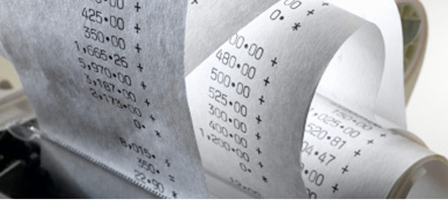Standard Mileage Rates Announced for 2021. What Has Changed?
- Discover the new standard mileage rates for 2021.
- Find out how the business, charitable, medical, and moving rates have changed.
- Discover some important considerations for 2021.
- Learn more about switching between the actual expense and standard mileage rate methods.
- Discover options for employer reimbursements.
- Learn more about the suspension of employee deductions.
- Get more information about special allowances for SUVs.
The IRS, each year, computes standard mileage rates for the use of a vehicle for business, medical and moving purposes. They base the rates on a number of factors, to determine the standard mileage rates for the following year. And Fiducial has the latest news!
As it does annually around the end of the year, the IRS has announced the 2021 optional standard mileage rates. Thus, beginning on Jan. 1, 2021, the standard mileage rates for the use of a car (or a van, pickup, or panel truck) are:
- 56 cents per mile for business miles driven (including a 26-cent-per-mile allocation for depreciation). This is down from 57.5 cents in 2020;
- 16 cents per mile driven for medical or moving* purposes. This is down from 17 cents in 2020; and
- 14 cents per mile driven in service of charitable organizations.
* For years 2018 through 2025, the deduction for moving is only allowed for members of the armed forces on active duty. They must move pursuant to a military order.
The business standard mileage rate is based on an annual study of the fixed and variable costs of operating an automobile. The rate for medical and moving purposes is based on the variable costs determined by the same study. The rate for using an automobile while performing services for a charitable organization is statutorily set. It can only change through Congressional action and has been 14 cents per mile for 23 years.
Should you use standard mileage rates?
The 2021 standard mileage rates take into account 2020 fuel costs. Based on the potential for substantially higher gas prices in 2021, you may want to consider switching to the actual expense method for 2021. Alternatively, you could at least keep track of the actual expenses, including fuel costs and repairs and maintenance. This way, you still have the option available for 2021.
Taxpayers always have the choice of calculating the actual costs of using their vehicle for business rather than using the standard mileage rates. In addition to the potential for higher fuel prices, the 100% bonus depreciation deduction and increased depreciation limitations for passenger autos provided by the 2017 Tax Cuts and Jobs Act may make using the actual expense method worthwhile during the first year when a vehicle is placed into business service.
However, you cannot use the business standard mileage rate if you used the actual method in previous years. (This includes using Section 179, bonus depreciation, and/or MACRS depreciation.) This rule applies on a vehicle-by-vehicle basis. In addition, you may not use the business standard mileage rate for any vehicle used for hire or for more than four vehicles simultaneously.

Employer Reimbursement
When employers reimburse employees for business-related car expenses using the standard mileage allowance method for each substantiated employment-connected business mile, employees receive a tax-free reimbursement if they substantiate to the employer the time, place, mileage, and purpose of the employment-connected business travel, and returns any excess payment to the employer. We call this reimbursement arrangement an accountable plan.
The Tax Cuts and Jobs Act eliminated employee business expenses as an itemized deduction, effective for 2018 through 2025. Therefore, during this period employees may not take a deduction on their federal returns for unreimbursed employment-related use of their autos, light trucks or vans. Since they no longer get any tax benefit, employees with significant job-related auto usage should ask their employers to set up an accountable plan to reimburse them.
Members of a reserve component of the U.S. Armed Forces, state and local government officials paid on a fee basis and certain performing artists may continue to deduct unreimbursed employee travel expenses, including the business standard mileage rate because they are deductible from gross income rather than as an itemized deduction.
Self-employed individuals may continue to deduct use of their personal vehicle for business purposes as an expense of the business if properly substantiated.
Faster Write-Offs for Heavy Sport Utility Vehicles (SUVs)
Many of today’s SUVs weigh more than 6,000 pounds and are therefore not subject to the deduction limit rules for luxury auto depreciation.
Taxpayers who purchase a heavy SUV and put it into business use in 2021 can utilize two deductions. They may use the Section 179 expense deduction, up to a maximum for 2021 of $26,200, and the bonus depreciation (if you claim the Section 179 deduction, you must apply it before the bonus depreciation) to produce a sizable first-year tax deduction. However, the vehicle cannot exceed a gross unloaded vehicle weight of 14,000 pounds.
Caution: Business autos are 5-year class property. If the taxpayer subsequently disposes of the vehicle before the end of the 5-year period, as many do, a portion of the Section 179 expense deduction will be recaptured and must be added back to the taxpayer’s income (self-employment income for self-employed individuals).
The future ramifications of deducting all or a significant portion of the vehicle’s cost using Section 179 should be considered. Generally, for vehicles weighing more than 6,000 pounds, using 100% bonus depreciation is the better option.
Have questions related to the best methods of deducting the business use of your vehicle or the documentation required? Call Fiducial at 1-866-FIDUCIAL or make an appointment at one of our office locations to discuss your situation.
Ready to book an appointment now? Click here. Know someone who might need our services? We love referrals!
For more small business COVID-19 resources, visit Fiducial’s Coronavirus Update Center to find information on SBA loans, tax updates, the Paycheck Protection Program, paid sick and family leave, and more.









